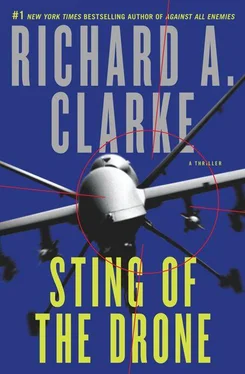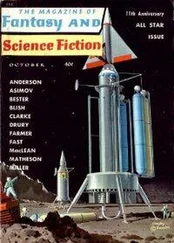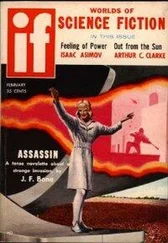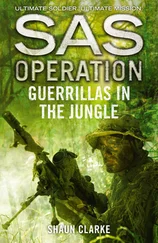The two men continued to finish each other’s sentences. “And if we screw up in how we use it, people will demand we stop,” Burrell continued. “I have the ACLU and half a dozen other groups trying every legal means to stop the program as a violation of international law, or as a criminal conspiracy to conduct extrajudicial murders. ‘The President and Winston Burrell have set themselves up as prosecutors, judges, jury, and executioners.’ That’s what they say and the truth is, they’re right. We are all of those things.”
They seemed to have played out their script, so Sandra responded. “Dr. Burrell, we all feel personal responsibility for these life-and-death decisions. No one in the program thinks this is just another job; they are all acutely aware of how sensitive and important the work is, how necessary it is that we get it right, every day.”
“Okay, Sandra,” Burrell said, “What would you tell a Congressional Committee?”
“I’d tell them we do not initiate Kill Calls lightly. We track a target and spend days getting a Pattern of Life on him, what does he do every day, where does he go, when does he go there, who else is there. We work very hard to ensure that there are no women and children, no civilians anywhere nearby. We often wait until he is in a car alone or with another terrorist, off on a road by himself.
“If we are going after an HVI, we make sure it’s him, through facial and voice recognition, through human assets on the ground. Then we act under Title 50, Intelligence Act authority, under the Presidential Finding. If we see a signature of an imminent terrorist threat or an opportunity to do irreparable damage to the terrorist organization, we go Authorized Use of Military Force, under Title 10, Defense authorities, under the Law of War standards. Lawyers pore over every strike before I initiate a Kill Call. We are very careful.” Then she thought about the Viennese student. “We know how we missed the student in Vienna. We have run an After Action to figure out what went wrong. It won’t happen again.”
Burrell got up and walked over to his desk, picked something up and returned to the sitting area. He handed Sandra a picture of a handsome, young blond boy. “The President gave me this. It’s Wilhelm Stroeder. I have no idea where he got it. He gave it to me. I’m giving it to you. I should be giving you a picture of the thousands you’ve saved, but we don’t know who they are, so I am giving you Wilhelm to remind you and your team that this is about real people, not just HVIs and code names.”
Burrell rose and offered Sandra a handshake. ‘You’re doing a good job, but you have to keep it that way because there are people gunning for you, for me, for the program. And Ray’s right: it’s all we got.”
Leaving the suite, Sandra Vittonelli felt that the already heavy weight on her shoulders had just doubled. “Got time for a coffee?” Ray asked as he followed her out. “Let’s drop downstairs to the Mess.” On the ground level, outside the Situation Room doors, Ray Bowman seemed to know everyone, even the enlisted sailors running the take-out window of the West Wing’s little executive dining room. He talked them into opening a side dining room, where he and Sandra sat alone with big mugs of dark roast.
“Are you sure you don’t work here?” Sandra asked when they had settled into the chairs in the dark, wood-paneled private dining area.
“I do have a Mess account,” he admitted. “I am here a lot, doing special projects, off-the-books stuff sometimes, for Winston. He doesn’t trust the Bureau or the Agency.”
“But I’m Agency,” Sandra noted.
“Yeah, but your program is closely identified with the President. The program is a hybrid, half Intel, half DOD. And it’s kind of a redheaded stepchild. The boys up the river keep a safe distance. Notice that you were the only Agency person here today. No Director, no Deputy. If it goes splat, they will be nowhere near it, and if it does go wrong, they will let it go splat all over the President and Burrell. If it works, they will take the credit.”
Sandra laughed.
“What’s funny about that?” Ray asked.
“I thought you were a redheaded stepchild once. Weren’t you?”
It was Ray’s turn to laugh. “Very good memory, Sandy. I was, when my mother got remarried. Now it’s really darkened, kinda auburny brown,” he said patting down his hair.
Sandra Vittonelli’s secure mobile phone chirped. “I have to take this,” she said to Bowman. After a short, cryptic conversation, she returned to the table.
“Ray, Erik is acting when I am on the road and he wants to initiate a Kill Call. Is there someplace here? Can you get me into the Sit Room?”
Three minutes later they were sitting together in a small conference room in the Situation Room suite. On the main screen was an image beamed from a drone in Pakistan, an image that seemed to be mainly clouds. Erik Parsons’s face was on a smaller, side screen. “Ms. Vittonelli, we have been tracking an HVI code-named Packard for six days now. His Pattern of Life was that he kept to the house or the yard, receiving bad guys, but always with his wives and kids around, so No Joy. An hour ago he and two goons got in the SUV and they are driving south toward civilization. Right now they’re still on a back road, pretty empty, but they are about ten minutes away from a main road that will have traffic.”
Sandra muted the microphone and turned to Ray Bowman. “We give each targeted terrorist a code word name. Civil War battles. Whatever. Now we are on old cars.”
Winston Burrell walked in and sat next down to Sandra, who remained at the head of the table. “Keep going, this is your show,” he said.
“Erik, there is too much cloud cover in this image for me to authorize a shot,” she said.
“If we go lower, they will hear the bird,” the Colonel replied.
“Go lower.”
The image on the screen showed the clouds disappearing and then a lone SUV moving slowly on a road. Two minutes later the Toyota pulled abruptly off the road and halted. Three men burst out of the vehicle, each running in a different direction, diving under the low scrub bushes that lined the road.
“They think they can hide,” Erik’s voice said over the speaker. As he spoke, the image on the screen changed to black and white with shades of gray. “The infrared cam has all three targets fixed.”
Sandra looked at Burrell, who nodded, got up, and walked out of the room. She looked into the video camera above the flat screen. “I judge that we have located an HVI on the target list and two of his body guards. I have determined that there is no apparent risk of collateral damage. I have obtained the necessary clearances and I authorize weapons release.”
Within seconds, the image on the screen was showing three explosions. “How much do each of those missiles cost?” Ray asked, after muting the microphone.
“You don’t want to know. A lot more than a nine millimeter bullet,” she replied. “But a lot less than the cost of a U.S. embassy blowing up.”
The videoconference continued, as the operation went into the Bomb Damage Assessment phase and the wait for compatriots who might show up. Ray kept the microphone muted. “Sandy, Winston has asked me to watch out for you. That means intel support, being the political eyes and ears in this town, doing counterintel and force protection analysis, everything. In short, I got your back.” He hesitated a moment. “It’s been a few years, but, as I recall, it’s quite a lovely back.”
Sandra flashed on a night in London six years earlier. “Watch it, Ray.”
Erik Parson’s voice came out of the speaker on the wall, “Kill Conference closed.”
Читать дальше












